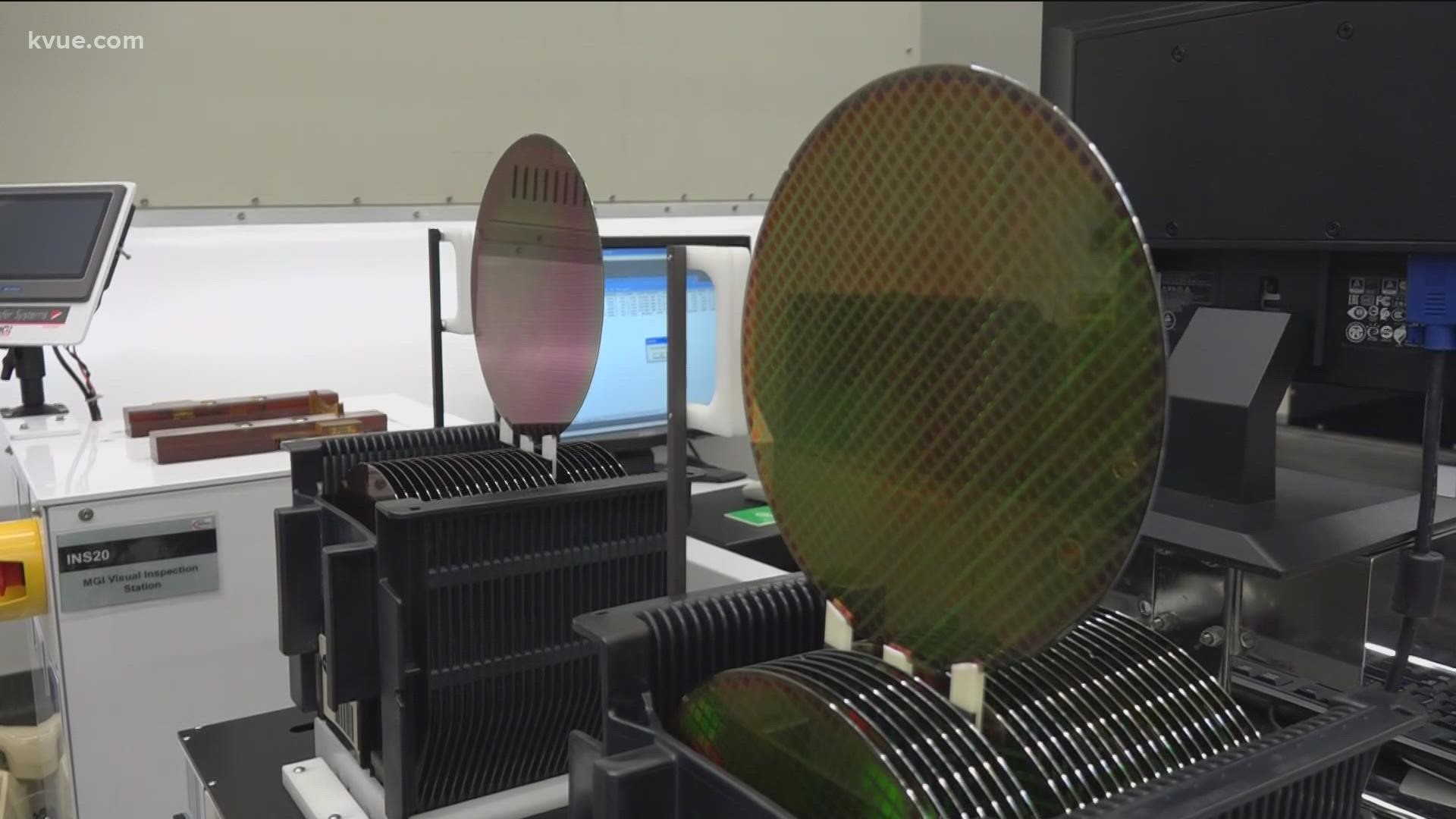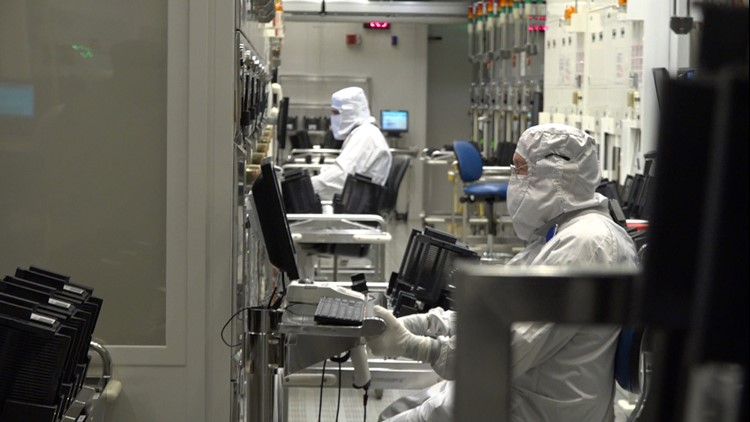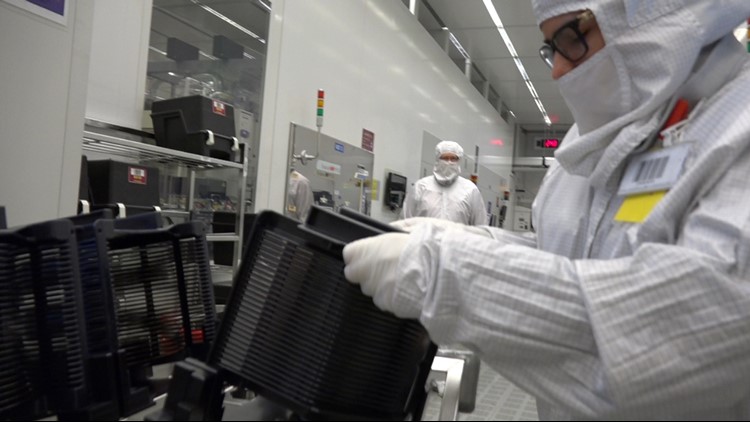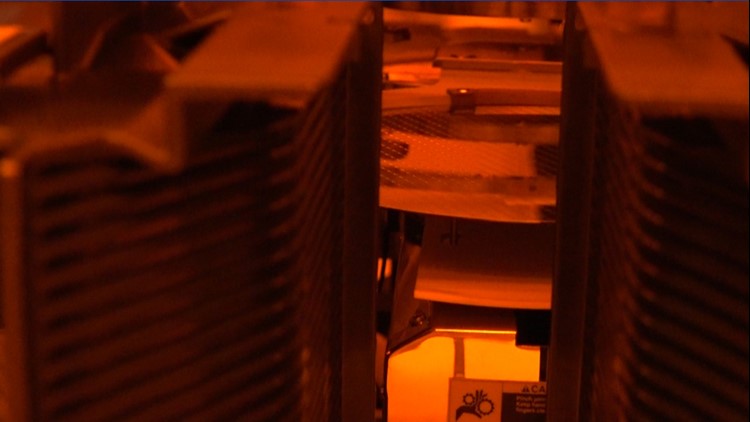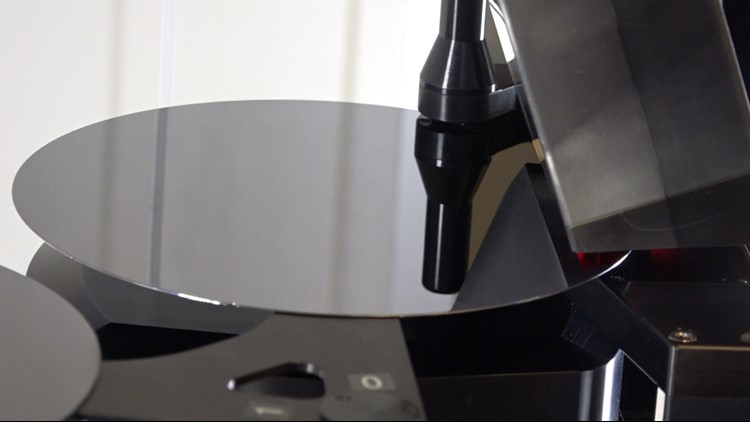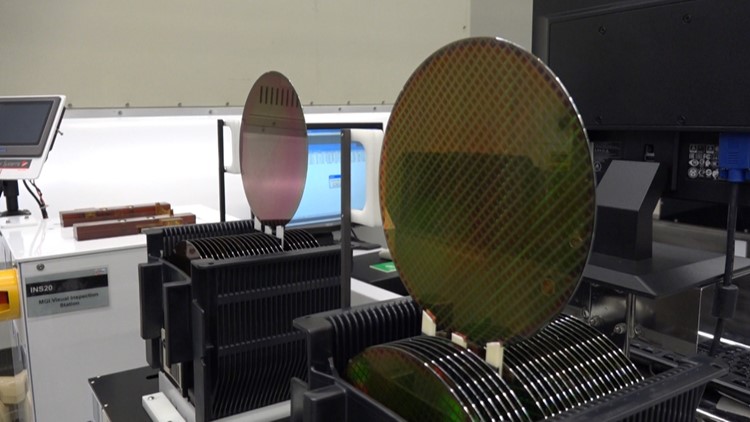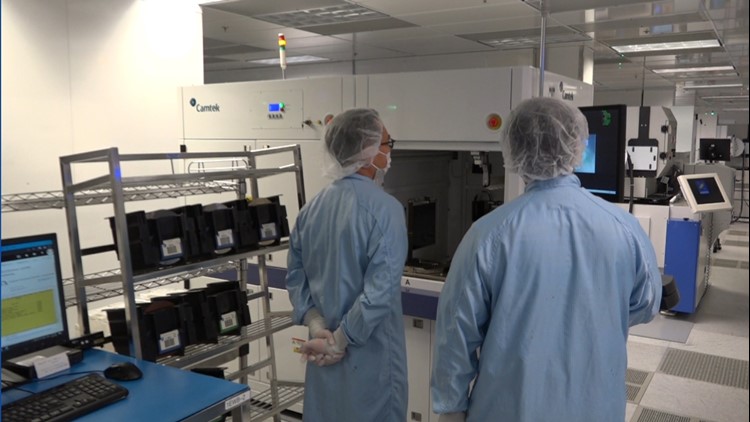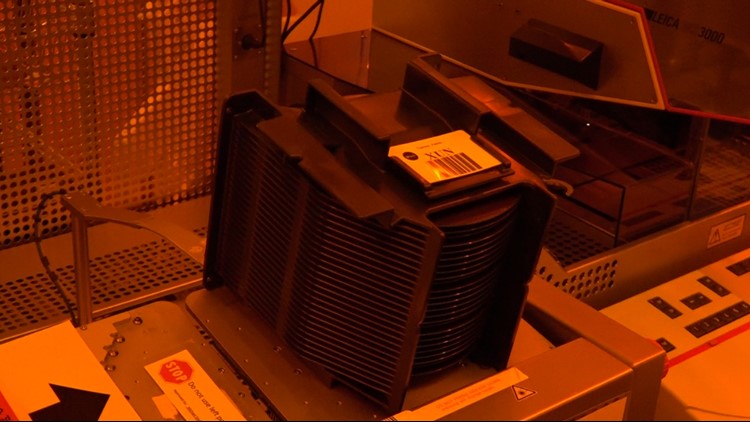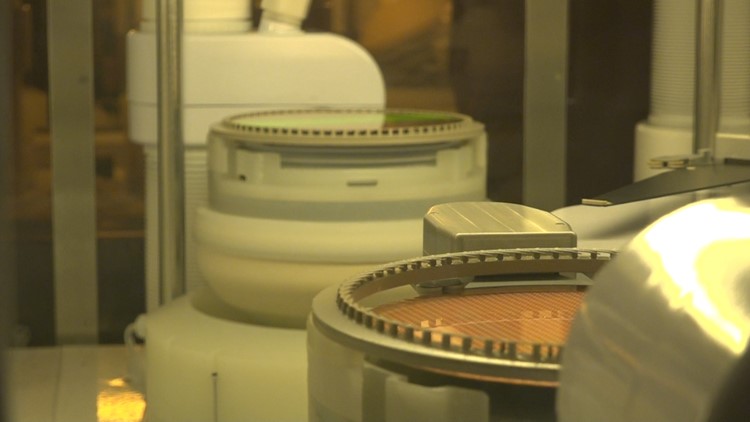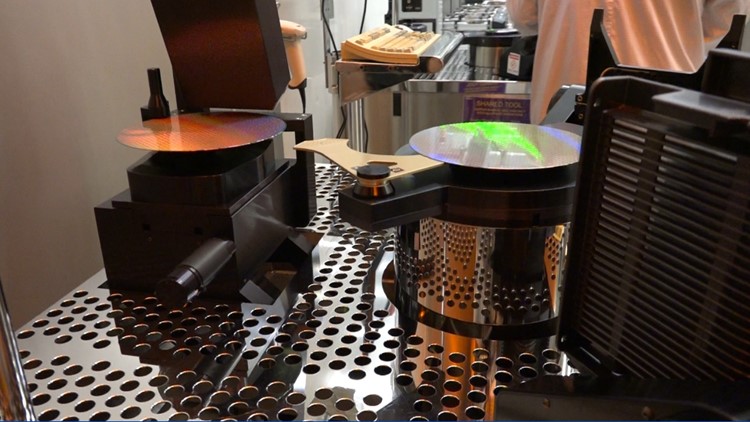AUSTIN, Texas — Austin makes semiconductor chips – the fourth-most traded good in the world behind oil, cars and crude oil. Because of the huge demand and proprietary knowledge, many fabs are extremely private. However, Infineon, one of the few companies who makes chips in Austin, opened its doors to get a look inside the 25-year-old facility.
"All the kinds of electronics that you use every day, you know, we make chips for those here," Steve James, the Vice President of Operations at Fab 25, said.
Every modern electronic device contains semiconductors – from phone chargers to fighter jets. Fab 25 stands out as unique among the local semiconductor manufacturers, according to James. When it was built in the 1990s, the facility had cutting-edge technology and a $1.5 billion investment.
The fab has different degrees of cleanliness where the chips are made and tested. Inside where the chips are made, the 114,000 square foot room is a Class 1 clean room, the highest designation. Where the chip wafers are sorted and tested, a separate 30,000 square foot room has a Class 1000 designation. These designations basically stand for how fine the particulate matter is inside each room.
"There are hundreds of steps involved as you are building up layers, but you're also in between those layers," James said. "You're cleaning. You apply a pattern. You do something, then you remove the pattern. And you go again and again and again. And so it just it takes a while. The actual process time for most fabs, you know, it's maybe a third of the real time, but there's transportation time, there's queuing up, you know, there's inventory, various steps."
PHOTOS: Infineon semiconductor chip-making factory in Austin
Infineon makes between 800 million and 1 billion chips per year according to James. For each order, it can take six to 12 weeks to press patterns and transistors onto a blank chip wafer then inspect the wafers before sending them out to be cut into individual chips.
"Features will continue to get smaller, and those factories that make those really advanced chips are going to continue to get more and more expensive because the equipment that prints those lines, the smallest lines, you know, over $100 billion per tool," James said. "Those are going to be not really in the applications, but they're so expensive. You'll only have those only where you have a really high volume of chips to make in an application that really cares like, you know, the processor in your phone, the processor in your computer take the most advanced chips and the most advanced and really expensive factories. Every one of those applications has tens or hundreds of other chips that don't need the most advanced factories and need a low cost. That's why all the chip factories in the world are busy today. Because they're doing those chips, too."
According to Sen.John Cornyn (R-Texas) and Congressman Michael McCaul (R-Austin), about 90% of the world's most advanced chips are created in Taiwan. Many companies in the U.S. may do the research for those advanced chips, but chip makers like Infineon create the chips for those lower applications that go into your phone, your car or technology that may even be just a couple of years old.
"We could put millions and billions of components on one chip," James said. "Other than probably making a car, this is probably the most complicated thing you could make."
PEOPLE ARE ALSO READING:

